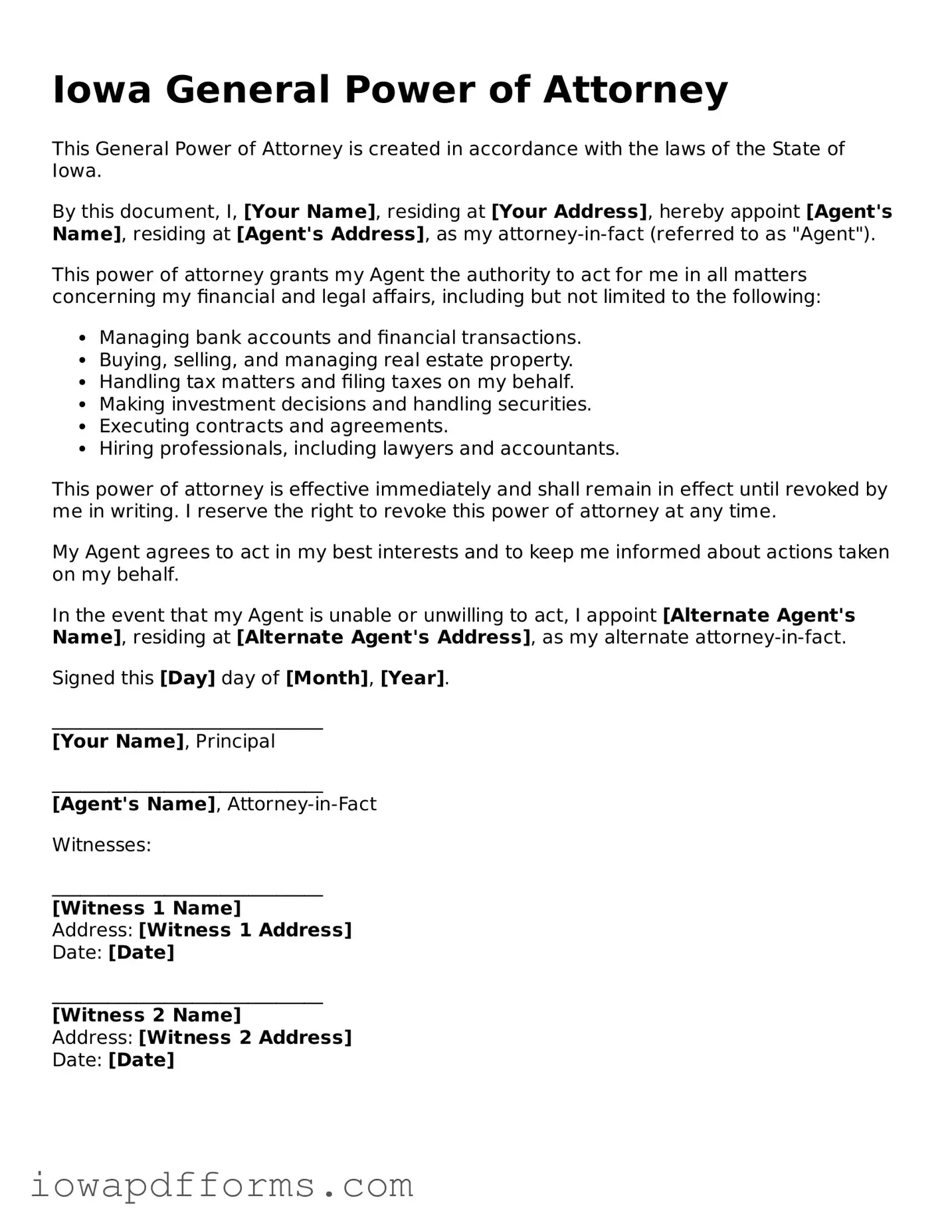The Durable Power of Attorney is similar to the General Power of Attorney but with a key difference: it remains effective even if the principal becomes incapacitated. This document allows an agent to continue making decisions on behalf of the principal, ensuring that their financial and medical affairs are managed seamlessly during a period of incapacity. This feature provides peace of mind, knowing that someone trusted can step in when needed.
The Medical Power of Attorney specifically focuses on healthcare decisions. This document grants an agent the authority to make medical choices on behalf of the principal if they are unable to do so themselves. While the General Power of Attorney covers a broader range of financial and legal matters, the Medical Power of Attorney is tailored to ensure that healthcare preferences are respected and followed, particularly in critical situations.
A Limited Power of Attorney allows the principal to specify particular tasks or decisions that the agent can handle. Unlike the General Power of Attorney, which grants broad authority, the Limited Power of Attorney restricts the agent's powers to specific actions, such as selling a property or managing a bank account. This document is useful when the principal wants to maintain control over their affairs while delegating certain responsibilities.
The Springing Power of Attorney becomes effective only under specific conditions, typically when the principal becomes incapacitated. This type of document offers a layer of protection, as the agent's authority is not active until the predetermined circumstances arise. This can provide reassurance that the principal's wishes are respected until they truly need assistance.
The Financial Power of Attorney focuses solely on financial matters, such as managing bank accounts, investments, and real estate transactions. This document is similar to the General Power of Attorney but emphasizes the management of financial affairs. It ensures that the principal's financial interests are protected and handled by a trusted individual, especially in cases of absence or incapacity.
Understanding the importance of legal documents in managing both financial and medical affairs is crucial for individuals, especially in unforeseen circumstances. For those looking to secure a clear commitment of repayment within a financial context, utilizing a Promissory Note can offer substantial benefits. This document not only outlines terms and conditions for loans but also provides necessary legal protection. If you need to create this important legal document, you can find a convenient template at https://promissoryform.com.
The Revocation of Power of Attorney document serves to cancel any previously granted powers. If a principal decides to change their agent or revoke authority altogether, this document is essential. It formally communicates the termination of the agent’s powers, ensuring that no further actions can be taken on behalf of the principal.
The Advance Healthcare Directive combines elements of a Medical Power of Attorney and a living will. This document not only appoints an agent to make healthcare decisions but also outlines the principal's wishes regarding medical treatment in end-of-life scenarios. It provides clear guidance to healthcare providers and loved ones, ensuring that the principal's preferences are honored.
The Trust document allows for the management of assets and property by a trustee on behalf of beneficiaries. While a General Power of Attorney grants authority to an agent to manage affairs during the principal's lifetime, a trust can provide long-term management and distribution of assets even after the principal's death. This can be a strategic tool for estate planning and asset protection.
The Will is a legal document that outlines how a person's assets should be distributed after their death. While it does not grant authority during the principal's lifetime like a General Power of Attorney, it serves a complementary purpose in estate planning. A will ensures that the principal's wishes regarding their estate are carried out, providing clarity and direction for loved ones.
The HIPAA Release form allows an individual to authorize others to access their medical records and health information. This document is important for ensuring that an agent or family member can obtain necessary medical information to make informed decisions. While it does not grant decision-making authority like a Medical Power of Attorney, it plays a crucial role in healthcare management by facilitating communication among healthcare providers and the designated individuals.

